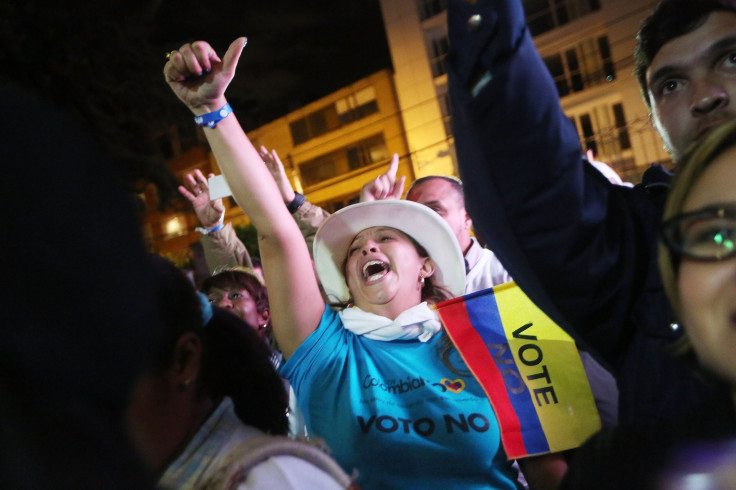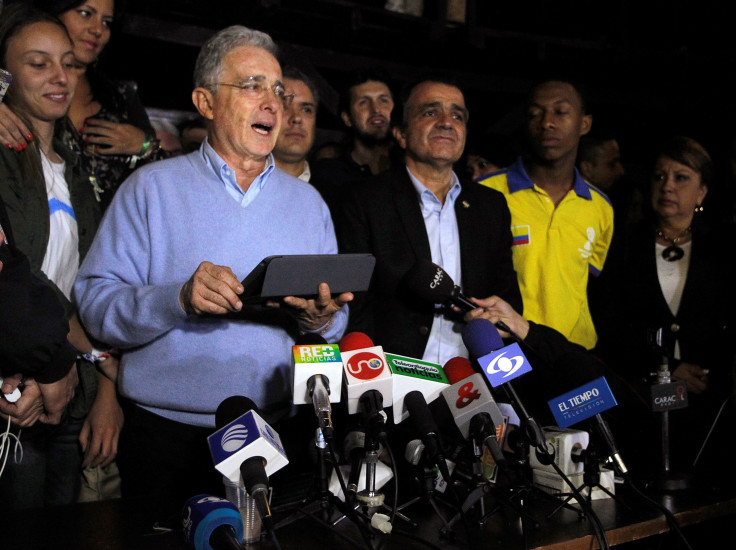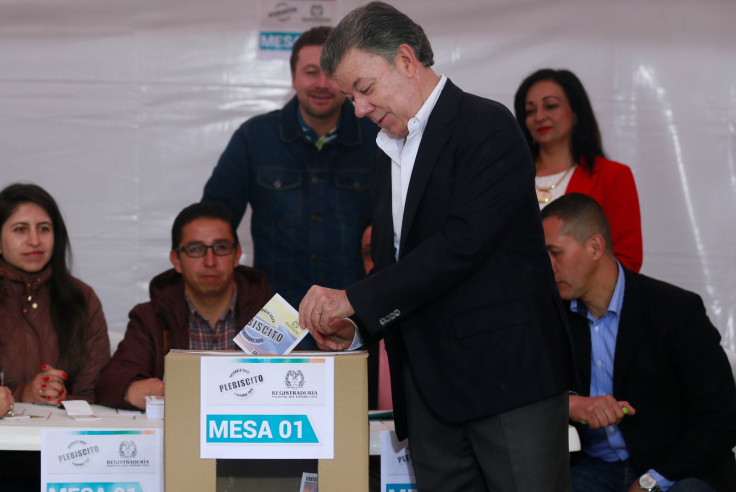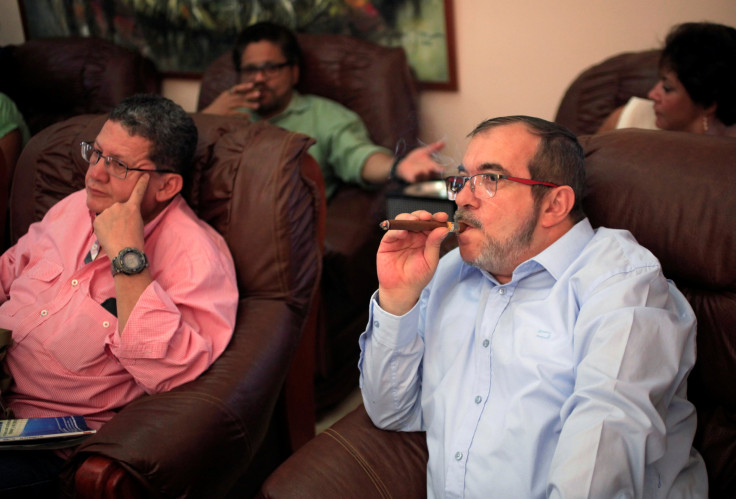Colombia Referendum Rejects FARC Peace Deal: What Happens Next?

The Colombian people voted Sunday against a historic peace deal signed between the South American nation’s government and FARC rebels that promised to end the 52-year-old civil war that has claimed over 220,000 lives. The deal, signed on Sept. 26, needed to be ratified by Colombians in order to come into effect.
The margin of victory for the “No” camp was very slim — it won just over 50.2 percent of the total votes cast. While enough people exercised their vote to make the referendum valid, the overall turnout was quite low at about 37 percent of the total registered voters in the country.
Most polls had been predicting a landslide victory for the “Yes” camp, and the result came as a surprise for many, and dealt a blow to President Juan Manuel Santos who was hoping the peace deal would solidify his legacy.
Opponents of the deal — a camp led by former President Alvaro Uribe — say the agreement in its present form is too lenient to the rebels. There are fears that failure to ratify the peace deal could plunge the country into violence again.
After the vote, Uribe said: “We all want peace, no one wants violence. We insist on corrections so there is respect for the constitution... We want to contribute to a national accord and be heard.”

Santos urged FARC members — who have already begun disarming under the watch of the United Nations, on their way to transitioning into a political party — to “be calm. We want this peace process to finish correspondingly. Democracy has spoken and now we should come to agreements. We do not want to delay the process [of the FARC] to become a political party.”
He also said: “I will not give up, I will keep seeking peace until the last day of my term because that is the way to leave a better nation for our children.”
Santos’ current term as president, his second and also last, ends in August 2018.

Speaking from Havana, the site of the negotiations, FARC commander Rodrigo Londono, a.k.a, Timochenko, said: “The FARC reiterates its disposition to use only words as a weapon to build toward the future. To the Colombian people who dream of peace, count on us, peace will triumph.”
Both Santos and Timochenko have said there was no alternate plan if the referendum voted against the peace deal. Now that it has come to pass, Santos has called a meeting of all political parties in Colombia, including Uribe’s, on Monday to discuss how the peace process can be restarted.
The biggest hurdle though, could be Uribe, who has consistently refused to meet with Santos to discuss the peace deal. However, even if Uribe’s party refuses to engage in the talks, the Colombian parliament can still decide to overrule the results of Sunday’s referendum, giving Santos the powers he needs to execute the peace deal. If that were to happen, it could ratchet up the tension — already running high — between supporters and opponents of the deal.
Significantly, the ceasefire with FARC “remains in force and will remain in force,” Santos announced on national television after the results were announced.

© Copyright IBTimes 2024. All rights reserved.











